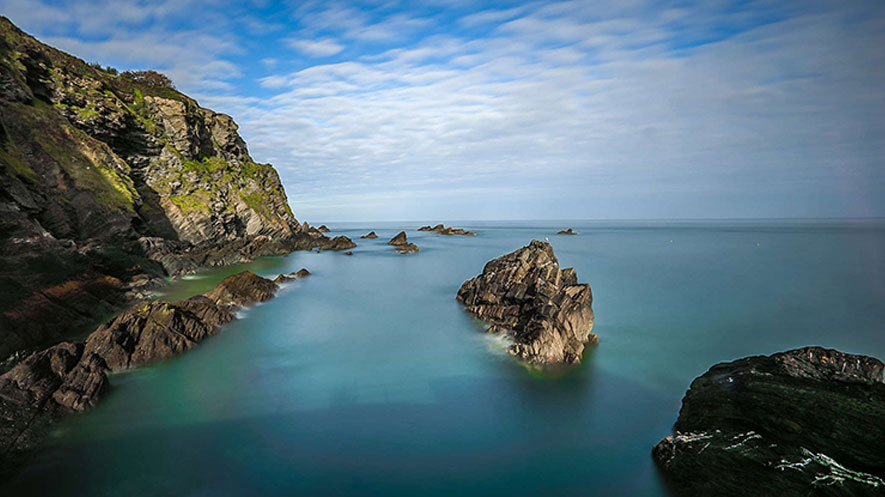Intertidal ecosystems and the small-scale fisheries they support are an important part of coastal economies, environments, and cultures. Globally, fisheries such as the soft-shell clams (Mya arenaria), face multiple stresses related to climate change, invasive species and unsustainable land use.
In a paper published in Ocean and Coastal Management, University of Maine researchers and colleagues show how co-management approaches -- based on shared responsibility for resource management among individuals and institutions -- can build resilience to socio-environmental change by strengthening the use of science in decision making and promoting adaptive capacities such as learning and leadership.
"We see an urgent need to find ways to wade into the complicated and sometimes messy work of co-management as a space for bringing differences together in productive, creative and equitable ways," says lead author Bridie McGreavy, assistant professor in the Department of Communication and Journalism, and faculty member in the Mitchell Center for Sustainability Solutions.
Co-management's commitment to shared responsibility points to the important role of communication, and requires that people share information, learn from each other, and collaborate.
"The communication aspect of shellfish management is critical to its success," McGreavy adds. "Our paper demonstrates how taking an engaged approach to research -- creating in-depth partnerships to design research that can be used for decision making -- can help strengthen co-management."
In addition to environmental threats, these fisheries also face complex social issues, many of which are related to poverty and limited access to educational opportunities. However, small-scale fishing communities in Maine and around the world are also rising to meet these challenges.
"Given the global challenges we face, many of which are linked to climate change and injustice, there is a pressing need to identify social factors that enable adaptation and the overall resilience of intertidal ecosystems and coastal communities," McGreavy says.
For example, on the coast of Maine, communities are working together to develop innovative ways to use netting to protect baby clams from invasive predators, so they can grow to adulthood. In other places, communities are also making progress on finding and fixing pollution, so they have more harvesting and conservation areas to manage.
The soft-shell clam fishery in Maine, say the paper's authors, provides an ideal case example for advancing this work. The shellfish co-management system is ripe for engaged research and adaptive responses to socio-environmental change for at least three reasons: the representativeness and diversity of issues within this fishery; the presence, scale and organization of the shellfish co-management system; and the history of applied marine science in the state.
From a communication standpoint, understanding perceptions about climate change, predation, water quality, and issues of human health and well-being creates a starting point for connecting across differences in how to address these complex issues. As the authors in this paper do, describing the multiple perceptions of problems and the multiple definitions of success provides a starting point for working across differences in perceptions and priorities.
The authors also assert that producing knowledge in partnership with people who will use that knowledge helps ensure that the research questions and resulting insights are relevant for the decision-making needs.
"When we engage by listening and taking action at multiple levels and letting our research activities adapt in response to real-world needs, we see that our work becomes valuable for addressing those needs," notes Ph.D. student and co-author Tyler Quiring.
This approach also nurtures relationships and mutual understanding that support the ongoing negotiation and uptake of knowledge, and this has proven essential in linking recommendations with demonstrated action.
For example, the team of researchers are continuing to work with the Maine Department of Marine Resources, the Maine Shellfish Advisory Council, and with shellfish communities to implement their recommendations, such as setting up a communication system between towns and the state to help tailor partnership strategies on a yearly basis.
"In our experience, an engaged approach can improve the ability of individuals and communities to anticipate changes, proactively respond, and begin to address power and equity issues for the systemic changes that are necessary to adapt and transform the fishery for the foreseeable future," McGreavy says. Further, working in partnership with a team of students who supported the engagement in multiple ways helps build capacity in academic institutions for engaged research and service.
By University of Maine



